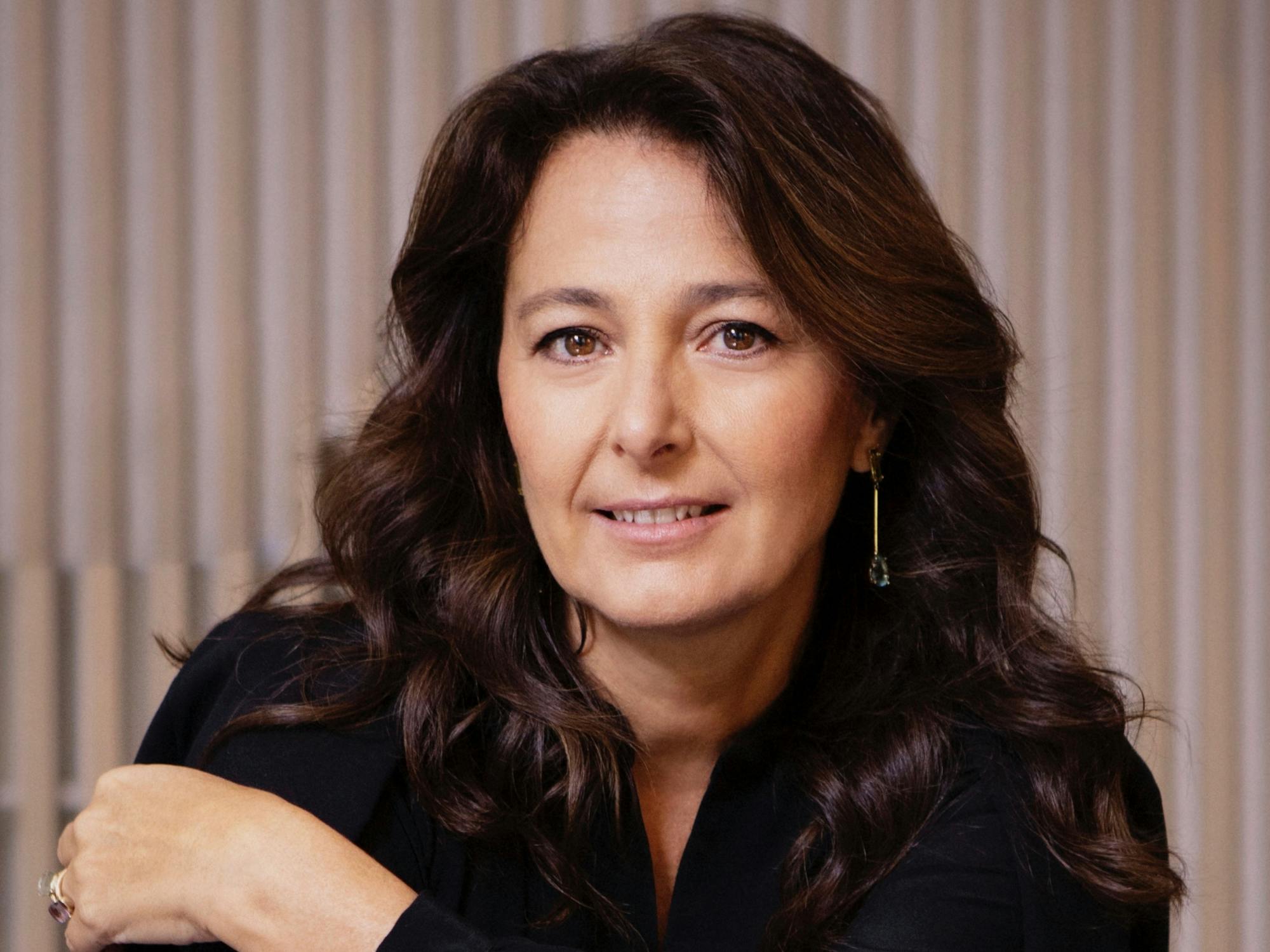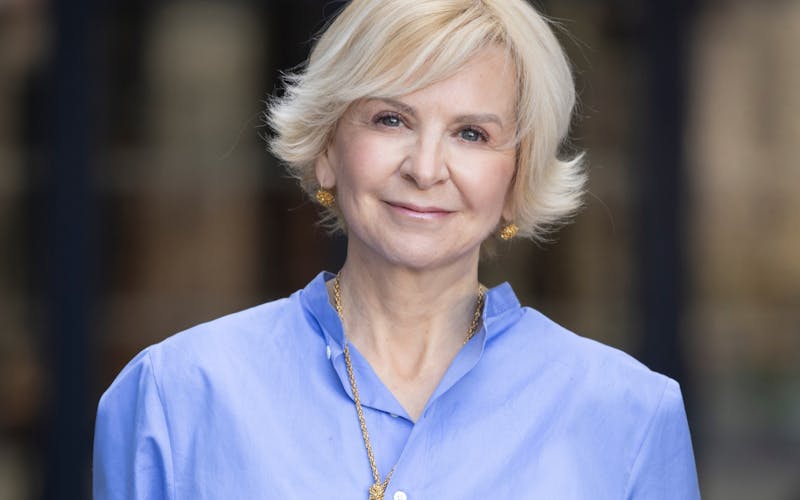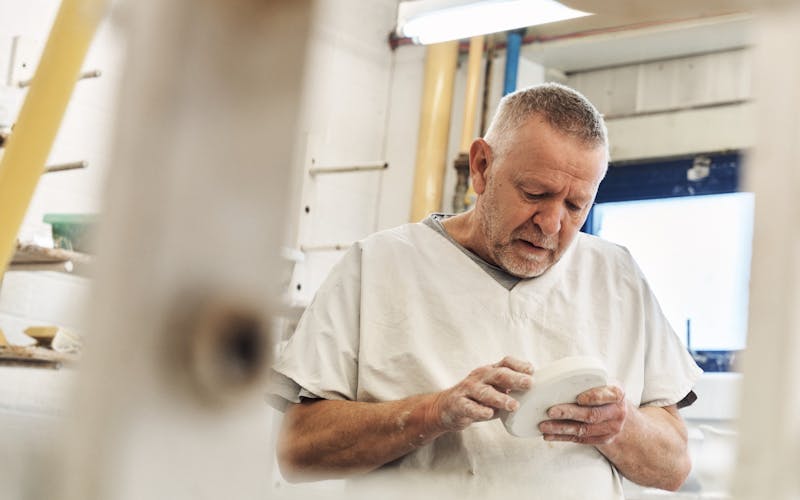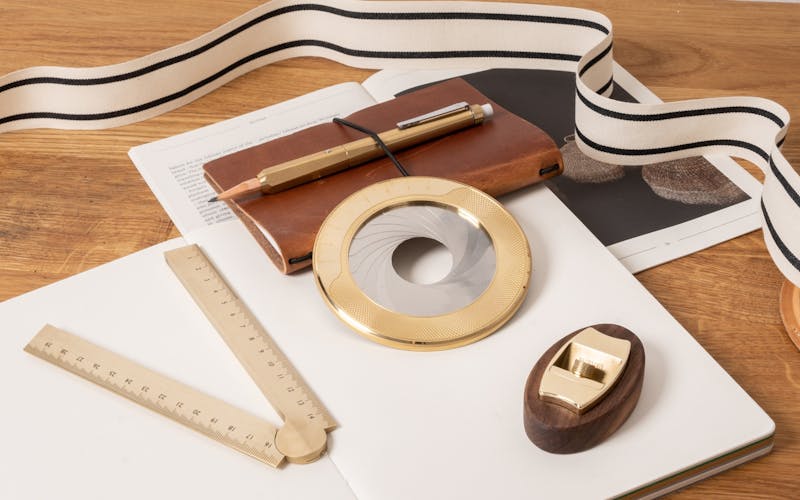
As a founding member of ECCIA – the European Cultural and Creative Industries Alliance – Walpole’s work reaches far beyond British shores. Composed of seven European member organisations in Italy, France, Spain, Sweden, Portugal, Germany and, of course, the UK, ECCIA's members join forces to represent the luxury sector’s shared values in Brussels at the European Commission. Our latest interview series introduces you to the CEO of each ECCIA member and brings you the key details that every high-end brand should know about the luxury sector in the country they represent.
For the next instalment in the series, we head to Milan to speak with Stefania Lazzaroni, CEO of Altagamma in Italy...
Walpole: Can you tell us about your association? How many members are there in your organisation, and what are the requirements of membership?
Stefania Lazzaroni: Altagamma was founded in 1992 by a small but representative group of nine Italian companies including Versace, Zegna, Gucci, Ferragamo, Alessi and Baratti & Milano. Santo Versace was the first Chairman of Altagamma. At that time companies were facing a new and challenging international expansion, and they were eager to share their experiences and ideas. Italy was coming out of a decade in which a host of talented fashion designers had added new lustre to the country, garnering worldwide reputations as masters of style and helping to elevate Italy’s image around the globe. Fashion was just the tip of the iceberg: food and wine, the genuine mainstays of our heritage, were ready to move up a gear, while Italian product design – after a decade of leadership built on manufacturing clusters and driven by innovative entrepreneurs and great designers – was preparing to reap the rewards of having opened up the sector to the general public.
Since then the association has grown steadily, consolidating its distinctive cross-sectoral characteristics, and it now includes 114 brands working in fashion, furniture design , jewellery, food and beverage, hospitality, automotive and yachts. Membership is open to Italian companies positioned at the high-end of the market, with solid international distribution networks, and which embody aesthetic and entrepreneurial values that reflect their Italian heritage and the iconic Italian lifestyle.
What are the qualities and characteristics of your country’s luxury sector that make it unique in the world?
Italy’s unique artistic and cultural heritage - dating back to the Roman Empire and the Renaissance – has fostered an innate savoir faire in matters of aesthetics and good design. With its unique wealth of art and architecture, storied cultural scene, superb food and famed lifestyle, the Italian peninsula has exerted an incredible pull on European travellers since the nineteenth century. And this heritage continues to fuel the creativity, innovation and craftsmanship which are the foundations of the products by our high-end brands.
Moreover, Italian luxury has always been rooted in craftsmanship. Our country has a centuries-long history of manufacturing know-how, and different fields of expertise have developed in different areas, leading to highly specialised industrial districts. These represent the cornerstone of our high-end industry, and are probably what makes it so unique: only Italy boasts so many clusters of expertise in so many different industries: design, food and wine, yachting, automotive, fashion, hospitality and jewellery.
Lastly, as explained in the Altagamma Charter of Values - published last year on the Foundation’s 30th anniversary - Italian high-end companies are now being called to play an even more significant role: to contribute to the wellbeing of society as a whole. Economic, environmental and social sustainability is the strategic horizon within which our companies are now rethinking not only their business models but their very raison d’être.
What would you say the primary talking point is amongst the luxury sector in your country right now and what is the biggest challenge to the growth of the luxury industry in your country, both domestically and internationally?
There is more than one. Responding to the demands of more conscious global consumers, sustainability – as we said – is now a key point on our companies’ agendas.
The digital transformation continues to be a major challenge, because it applies to every area of a company’s processes, from production to marketing strategies, and because the evolution of Artificial Intelligence is driving a new, rapidly evolving scenario that will have a tremendous impact on all our firms. With developments like NFTs, the metaverse, blockchain technology and AI itself, companies will undoubtedly be doing a lot of testing and making a lot of investments in this arena.
Another very critical issue is the lack of manufacturing talents in the luxury sector. According to our latest study, companies will require an additional 346,000 skilled workers in the next four years, but only 50% of places will be filled if we don’t succeed in engaging our youngsters in new, more compelling ways. We need to reframe these kinds of jobs and explain their value to families, governments and - last but not least - the new generations themselves. This is why we launched the “Adopt a School” project last year, which aims at promoting the craftsmanship and technical knowledge indispensable for our industry. 26 brands got involved so far adopting a vocational school and working together with the teachers to create programmes to shape the creators of tomorrow.
A further area of importance is the internationalisation of our companies. Many of the Italian luxury companies started out as family businesses, and with globalisation and the explosion of new markets, they are facing many challenges: from developing a distribution network to reinforcing their brand awareness or tackling technological innovation and sustainability. These challenges call for greater investments and new managerial skills that might need a different of governance in the future.
Capital can be sourced in different ways: going public, partnering with Private Equity Firms, joining international groups (LVMH, Kering, Richemont etc.) or creating holdings, as in the furniture design sector.
Whatever the choice, each company needs to find a tailor-made solution while maintaining its DNA and the elements that have made it successful. It’s a very personal recipe and one that each entrepreneur must craft individually.
What are the calendar highlights that your company organises throughout the year?
Our calendar gravitates around the Foundation’s different areas of activity. As a knowledge hub, Altagamma offers its members a series of authoritative studies on the luxury market. Every year the Foundation carries out several research projects, working with leading international partners (Bain, BCG, Mckinsey, Deloitte, etc.). Many of these are presented at public conferences open to members and non-members alike. The Altagamma Monitor, for instance, now in its 22nd edition, has become an international point of reference for luxury companies and analysts. More specific research is carried out and insights presented to our members only during internal meetings on many different topics.
Lobbying is a second key area for Altagamma and its members and its importance is growing as Europe becomes a more authoritative voice on many different topics (IP, Sustainability, Skills etc.). We also partner with the Italian government, working together on a number of issues of interest for our industry (such as industrial policy, tax regulation, education), and we engage with the Ministry of Foreign Affairs, developing various projects designed to raise the profile of Italian Excellence in the world.
Our Internal Working Groups are a much-appreciated form of networking, bringing the opportunity to share benchmarks and forge cross-sectoral dialogue. We currently run four groups: Marketing and Communication, Human Resources, Tax Regulation and Institutional Relations, which each meet three to four times a year. Managers from Altagamma companies are called to discuss specific themes and challenges related to the luxury industry and give the spur for activating new Altagamma initiatives.
Altagamma also stages other events and special projects, often in partnership with the Italian government: these include the “Adopt a School" project I mentioned previously, various Communications Initiatives including the “Mini Program” on We Chat, which involved 75 Altagamma brands in a joint promotional initiative in China, or the annual Altagamma Day, which takes place in Rome and starts with a Gala Dinner attended by all the CEOs of our member companies, as well as politicians and other key figures.
On the international side, in the last few years we’ve been building up the network of Altagamma Clubs, which aims to gather the branch managers of the Altagamma companies in some key cities (New York, Shanghai, Dubai, Tokyo) and connect them with local Institutions.
What has been the proudest moment for you in your tenure as CEO?
The presentation of the PANORAMA Video Installation at 2015 Expo in Milan – an installation devoted to the Italian way of life and Italian culture - is probably our highest-profile accomplishment to date. It was our first initiative produced in close collaboration with other associations: Salone del Mobile Milano (the annual furniture exhibition), the National Chamber for Italian Fashion, the Italian Chamber of Commerce and the Municipality of Milan. The Ministry of Foreign Affairs also invested in the installation, which was on for six months in the centre of Milan and was visited by all the foreign delegations and our Government representatives.
The video was an original production, mostly shot with 360° technology all over Italy and it showcased all our sectors, conveying the inspiring values that characterize all our brands, even if no specific brand was mentioned.
It was open to the public and the innovative approach – a projection onto a wrap-around screen 20 feet high and 72 feet in diameter – made it an extremely engaging highlight of the Milan Expo. The installation has also been screened in New York, Shanghai and Hainan.
There have been many other proud moments, such as presenting the Altagamma Charter of Values to the Italian President and the Pope, launching the Next Design Perspectives event, and creating our "Adopt a School" project to nurture Italian talents. But Panorama has a special place in my heart.
Which person in your country’s luxury sector inspires you – and why?
There are many people in Italy who inspire me. They include the creative minds behind our brands, whose visions of society and trends always give us a glimpse of the upcoming future. But most of all I’m inspired by the entrepreneurs and their grit. Having the opportunity to interact with them is always a precious moment, because you really get to appreciate their passion for their product, of course, but - above all - their determination and ability to follow a precise strategy whatever it takes, and in spite of many different points of view. It takes courage, to launch a company and a brand. You need a sound vision, terrific execution but also, and above all, the courage and ability to have faith in the final outcome, and keep a positive picture in mind of the end result.
You need to have this inner strength when you follow a new path, where there are no certainties. New brands are like unmapped terrain to explore: you need the right tools, and the right people on board but above all a passion for venturing into new ground, with the confidence that the final goal will be achieved. No major endeavour can be accomplished without this positive approach.
Why is an organisation like ECCIA important?
ECCIA is crucial because we need to advocate for the very specific needs of Europe’s high-end companies: over 600 brands which represent 4% of the EU’s GDP and 10% of EU exports. There’s still a lot to do to make our industry really understood as we have a very specific business model.
EU institutions are becoming more and more significant for the development of our business and no question luxury is a European industry: Europe is the largest market for luxury, the largest producer and the largest exporter.
There are several issues that we have been working on in the past decade, since ECCIA was founded in 2011: Intellectual Property, industrial promotional policies, commercial policies and selective distribution, the governance of the Internet, tax regulation, education, and the promotion of high-end tourism. These are all still on our lobbying map and must be for the next years. That’s why, during the Altagamma Presidency of ECCIA in 2022 and 2023, we all agreed we needed support and hired an external consultancy to better structure our impact in Brussels.
> Find out more about all the member organisations within ECCIA and its work here
> For more information on Walpole's international work and ECCIA, please contact Charlotte Keesing on [email protected]





